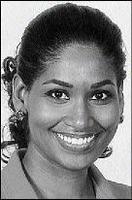Lisa Hanna, Contributor
Hanna
Over the past 30 years, there have been contending political ideologies in Jamaica. Socialism requires distribution of the fair share of a countrys progress to protect and benefit the least vulnerable in our society.
Conversely, the western capitalist model has been geared towards facilitating the producer or the wealthy above all else, on the premise that before you distribute you must produce. Hence, if you take care of the top, it will trickle down to the workers and the masses of the country.
The question that every country is now facing within this competing global economy is: how to achieve equitable economic growth for the benefit of all its citizens?
less state intervention
Today, we can point to many examples of countries that no longer subscribe to one or the other approach of these models. China is one such example. Chinas business environment of local production and foreign direct investment takes advantage of the capitalist model, as that government realises that in order to have meaningful production and economic growth, there needs to be less state intervention. However, this does not imply a dormant role for the state in areas such as culture, education and social programmes.
At this time, the Opposition is embarking on a trajectory towards the correct policy mix that draws on the new ways of thinking about ideology. This mission seeks to balance the partys traditional core principles with a new way of thinking, while recognising the contemporary global realities which require us to remain competitive with the rest of the world.
This new trajectory places emphasis on measurable objectives within measurable timelines, which will ultimately have integrated solutions for all Jamaicans. This is the Progressive Agenda: a new framework that optimises productivity while ensuring that the masses of the people share in wealth creation. Simply put, it is the partnership between the owners of capital and labour.
Reversing the old mindset has to begin with our youth. We have to create tangible opportunities for training, for them to realise their unlimited potential, as well as providing an environment where we all subscribe to and support the same set of priorities for Jamaica.
The equality of outcomes occur naturally in society when this individuals capacity to realise his or her full potential is enhanced.
FOCUS FOR THE FUTURE
Over the next 20 years, we need to focus on becoming world beaters in certain critical areas, such as music and culture, sport, value-added agriculture, shipping, and diverse tourism.
It is in partnership with enlightened owners of capital that we will achieve these goals. All successful companies in the world today see their people as the most important asset for their economic growth and success, and they have developed mechanisms and incentives which ensure that all share in the success of the outcomes.
It is not capital competing with labour, it is capital working hand in hand with labour for the benefit of all that will create the greatest wealth. To succeed in todays global economy owners and workers are jointly focused on working together as partners.
The Progressive Agenda holds both parties accountable and responsible for the success or failure of the outcome.
There are approximately 1,430,000 young people under the age of 30 living in Jamaica. Of this number 170,000 are still in the care of their home environments and 755,400 are enrolled in an educational or training institution. Of the remaining 505,600 young people 319,000 are employed. Leaving 186,600 who are left to fend for themselves, as they are in most cases not engaged in any meaningful, long-term productive activity; despite the fact that they may have taken a class or two in a post-secondary training facility. This balance represents seven per cent of the national population.
startling reality
What the data present is the startling reality, and possible explanation, as to why 70 per cent of all persons arrested for crime are under 30 and effectively come from this cohort. We have to be concerned with the fact that there are gaps in the system through which these youth are falling.
This reality becomes more depressing when we consider the culture of violence that has been, and continues to be, perpetrated upon our children. In a recent study it was reported that 60 per cent of our population aged nine to 17 had a family member who was a victim of violence.
Of this cohort, 37 per cent had a family member killed; 28 per cent reported that they felt unsafe in their neighbourhoods; 32 per cent of girls under 16 years of age were sexually assaulted, while only 20 per cent of the cases were reported to the authorities. The data show that 91 children were murdered in 2005. In 2006, 175 cases of intentional violence and murder were perpetrated against children, with 149 of the cases being boys.
To date, there are more than 2,000 children who live in institutions deprived of parental care, and approximately one in five children is born to a teenage mother.
In an attempt to re-engage this population, the approaches taken have to be more than celebratory. They have to be substantive, substantial and transformative.
We have to adopt integrated principles, values and laws that release the creativity of our youth. We must replicate the infrastructure and programmes that produce a Usain Bolt, Asafa Powell, Jessica Yap, Oshane Hamilton and Stycen Williams.
In an attempt to harness the talents of our young people in a strategic and transformative way, we need to provide them with national support and afford them the best opportunities. We will have to take a holistic approach to integrating progressive programmes of culture, sport and information as well as facilitate the convergence and collaboration of other youth programmes within education, health, agriculture, industry and commerce.
There are number of practical steps to achieve these objectives. Here is one: increase the number of youth information centres across the island. Currently, there are four centres that provide information, counselling and access to the Internet. Although three additional centres are to be built for this financial year, seven centres are still woefully inadequate.
We not only need to establish more centres, but we need to extend their functions to include resource opportunities for learning how to practise a healthy lifestyle, give training, provide mentorship, help with meaningful job placement, provide access to capital for entrepreneurship and agricultural development, institute the successful ACE reading programme developed by Dr Omar Davies in South St Andrew, that churns out educated and qualified young people like Oshane Hamilton and Stycen Williams on an annual basis (both students received between them 18 subjects with more than 12 distinctions).
centre goals
The Progressive Agenda, which calls for the partnering of capital and labour, suggests that these centres lead mentorship and leadership programmes in conjunction with organisations like the Jamaica Youth Employment Network, the JAAA and the Young Entrepreneurs Association.
The goal must be that these centres become the incubators within their respective communities to seek out these unattached youth for talent development for the new policies to be formulated for the country’s growth. It will be the centres’ primary focus to limit these youth’s propensity to engage in activities that otherwise might be harmful and illegal to themselves and the rest of society.
programme benefits
The benefits of such a programme would be transformative. Were this to be implemented, it would include a massive reduction in crime, which is currently estimated to rob the country four per cent of GDP; tourism revenues, it is said, would improve by a good 15 per cent (bringing an additional 20 billion to the economy); property values would increase by 200 per cent, to bring them in line with some of our Caribbean counterparts. In total, we would add in excess of an estimated J$70 billion on an ongoing basis.
Our mission is to articulate all the opportunities that are currently available, and present them in a format that is accessible and utilisable to our young people. Our charge is to intercede on their behalf to help them navigate pathways that will provide the least resistance and strengthen their resilience and resolve. Our course is to do our jobs with them in mind, not only to come to their rescue after problems become unmanageable, but to anticipate the threats and prevent them.

We have to adopt integrated principles, values and laws that release the creativity of our youth.- file
Lisa Hanna is opposition spokesman for youth, culture & information

